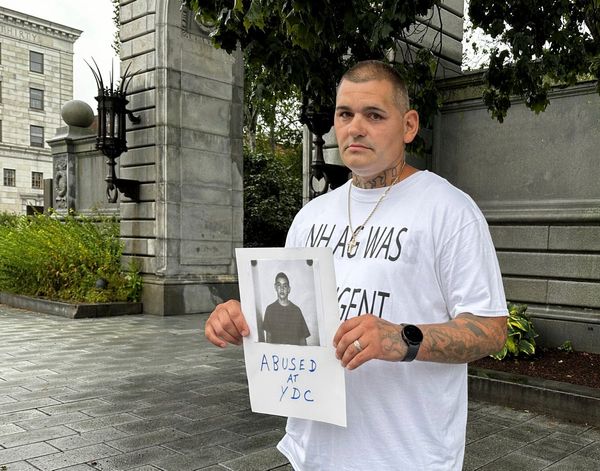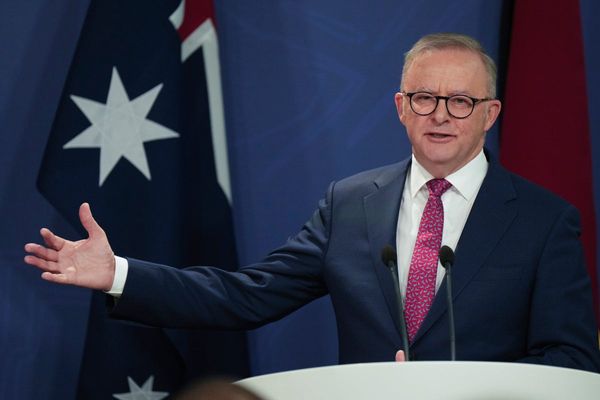A GP closes their doors. A young family goes without to afford the long drive for treatment. A chronic illness goes undetected. A newly-built clinic sits empty. It's a two-month wait for an appointment.
Stories like this are spilling out from all over rural Australia.
Surveys suggest about 15 per cent of medical graduates want to pursue general practice — many times less than the number needed to fix a national GP shortage.
And even fewer want to head to the bush.
For those who do, their dreams are being realised as they're also hearing why so few doctors are going rural: Living in country areas can be socially isolating, stressful, carry a risk of burnout and can mean a loss of earning potential.
Despite this, they're keen to get started.
So, what's in store for this passionate minority?
'You're from Sydney — why would you go rural?'
It's a question Vidhushan Paheerathan is asked sometimes.
Unlike most of his peers, the final-year medical student is determined to have a career in the bush.
"Before I even wanted to become a doctor, I wanted to become a rural doctor," he said.
He will graduate this year and pursue a rural generalist path — something he's wanted to do since visiting Costa Rica in high school and seeing the lack of healthcare that was available.
"It was an eye-opener … growing up in Sydney, I never had to worry about that."
It's all about lifestyle and community spirit
Aside from wanting to make a difference in small communities, Mr Paheerathan also just loves the lifestyle.
"If my car breaks down … I want to be in a town where people would stop and be like, 'Hey mate, what's going on?'
"That sense of community and togetherness is a really big drawing factor."
Amid workforce shortages, Mr Paheerathan said that the livability and community spirit of rural towns was vital to retaining people like him.
"Having a positive experience in a rural town is what's going to attract us to come back to rural communities," he said.
"[Financial] incentives aren't just the answer. You need more than that just to look forward to going to work on Monday."
However, increasing Medicare rebates would help, he added.
The Medicare patient rebate for GP services has been stagnant for eight years, meaning GPs are being paid almost the same for medical care now as as they were in 2014.
Mr Paheerathan said the amount was inadequate and heavily impacting the financial viability for his colleagues and other clinics in rural Australia.
Jess Simpson — who's currently on her final placement in outback Queensland — also hopes to become a rural generalist.
Her childhood — spent on the remote Shetland Islands off Scotland and then in rural Western Australia — has had a lot to do with that.
She said the support and experiences she's had on her placements has been amazing.
"For the most part, I'm excited," she said.
"But definitely there are stresses in the back of my mind, especially because the majority of my friends don't plan on working in rural general practice."
Knowing she could be professionally isolated was stressful, she added.
"It'd be much nicer to have security and knowing that more people want to go rural."
Does general practice have an image problem?
Mr Paheerathan said changing some damaging misconceptions about general practice within the medical community and broader public would help entice more graduates.
Graduates who chose general practice, rather than another specialisation, could be made to feel like “just a GP”.
Juliza Jahimin — who’s graduated and is training to be a GP — agreed that many students saw it as a “back-up option”.
“It’s not the first thing that comes into a budding medical graduate’s mind to do,” she said.
After studying overseas and spending a lot of her training in a hospital setting, Dr Jahimin now intends to be a GP in Cairns in Far North Queensland.
She wishes she’d pursued it sooner, but stigma held her back.
Dr Jahimin remembers telling a fellow medical student that she liked the idea of pursuing family medicine.
Her friend’s first reaction, “Why would you want to do that?”, had a real impact.
“It kind of derailed me, because I took that to heart.
“General practice was made to be seen as not that challenging.”
Dr Jahimin said universities and medical communities could do more to change perceptions of the field and encourage students to pursue it.
“I wish [that], when I was in medical school, someone [had] told me more about what general practice was like,” she said.
“If only I knew then what I do now, which is general practice is equally as challenging in its own way. And it's very, very reward rewarding.”
A long way from 40 per cent target
The concern about working remotely without much support was a common one, said Ian Kamerman, a Tamworth GP and chairperson of the Australian Medical Association Council of Rural Doctors.
“There's a whole lot of fear amongst young graduates … about the thought of being left alone to look after significant amounts of population,” he said.
“I love what I do. And a whole lot of my colleagues do, but the work is becoming harder and harder.”
And Dr Kamerman said it would take a long time to reverse and address the problems that have created the rural GP shortage.
“Australia, as far as its rural health workforce, tends to rely on international graduates,” he said.
An ageing workforce, higher workloads and problems of isolation for young single doctors, he said, were contributing to the shortage.
Health bodies have also called for urgent increases to Medicare rebates to make rural clinics more financially viable and help them retain staff.
To ease the shortage, the proportion of medical graduates who want to join GP training would have to increase from 15 per cent to 40 per cent, Dr Kamerman said.
“And we need a third of those to go on and do rural training and rural practice,” he noted.
“We’re well away from those numbers.”
GPs were undervalued, he said.
"But we also know that it is good general practice and good primary care that is associated with the health of a population,” Dr Kamerman said.







